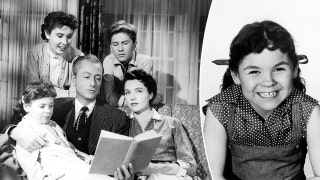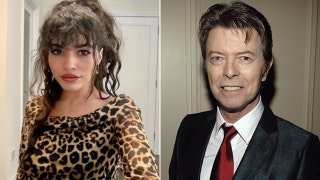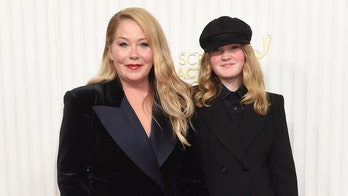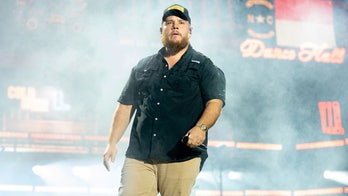Queen Camilla refuses to hold hands with French First Lady
The French First Lady attempted to hold hands with Queen Camilla, but the monarch refused. (Credit: AP)
Queen Camilla, who joined King Charles III at the U.K. Ministry of Defense and the Royal British Legion’s commemorative event in honor of the 80th anniversary of D-Day on Thursday, had an awkward encounter with French First Lady Brigitte Macron.
After laying wreaths in honor of the fallen soldiers at the British Normandy Memorial at Ver-sur-Mer, the First Lady attempted to hold the Queen's hand as they stood together in a moment of silence.
However, the gesture was not welcomed. Queen Camilla refused to hold Brigitte's hand and kept her arms by her side.
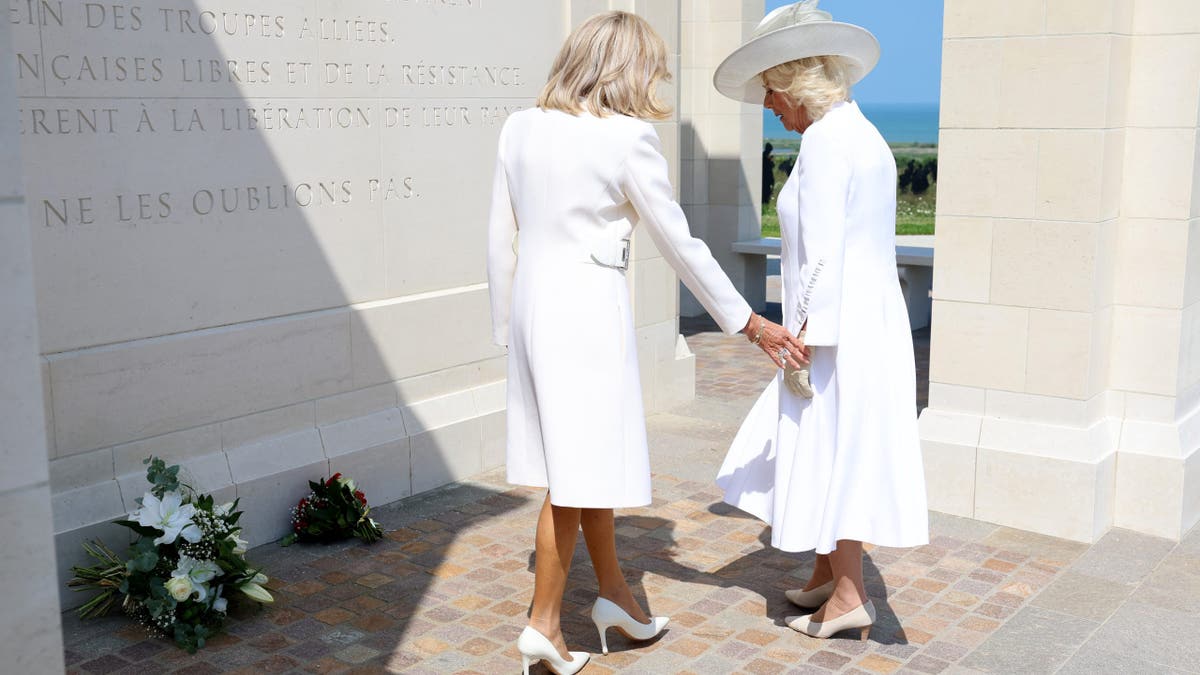
French First Lady Brigitte Macron attempted to hold Queen Camilla's hand. (Getty Images)
Quickly catching on, the First Lady stood alongside the royal with her arms folded in front of her.
The two women then rejoined their husbands, King Charles and French President Emmanuel Macron.
KING CHARLES GIVES FIRST PUBLIC SPEECH SINCE CANCER DIAGNOSIS AT D-DAY EVENT FOR VETERANS
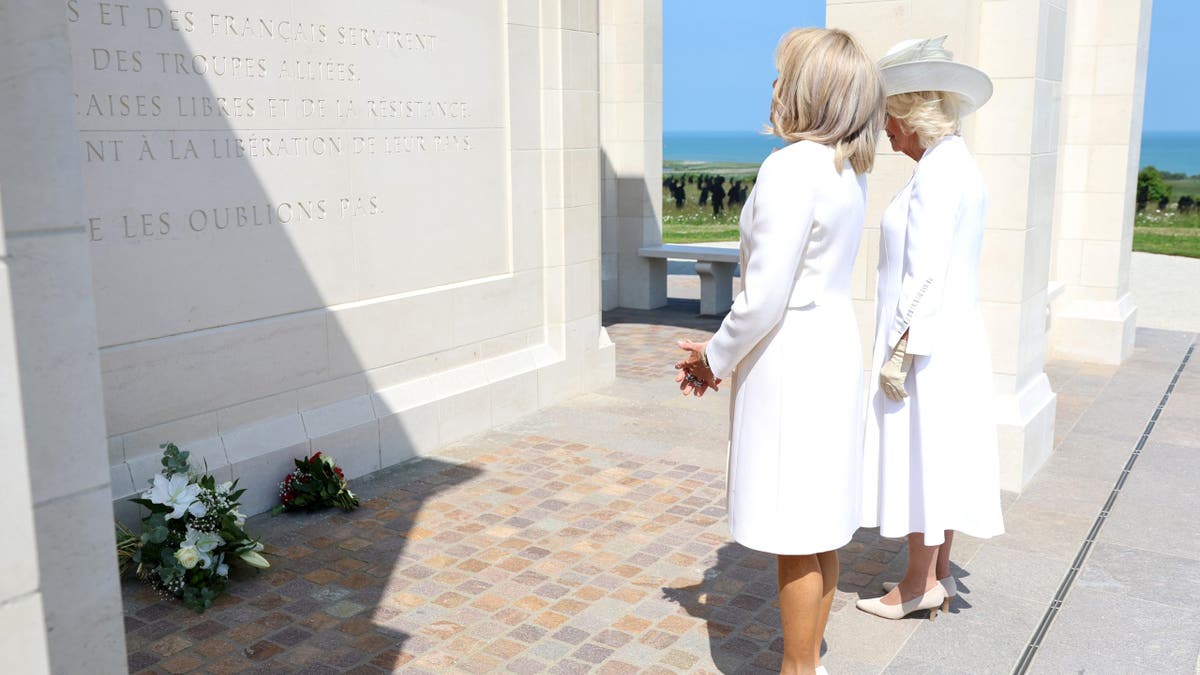
Camilla refused to hold hands with the First Lady and kept her arms by her side. (Getty Images)
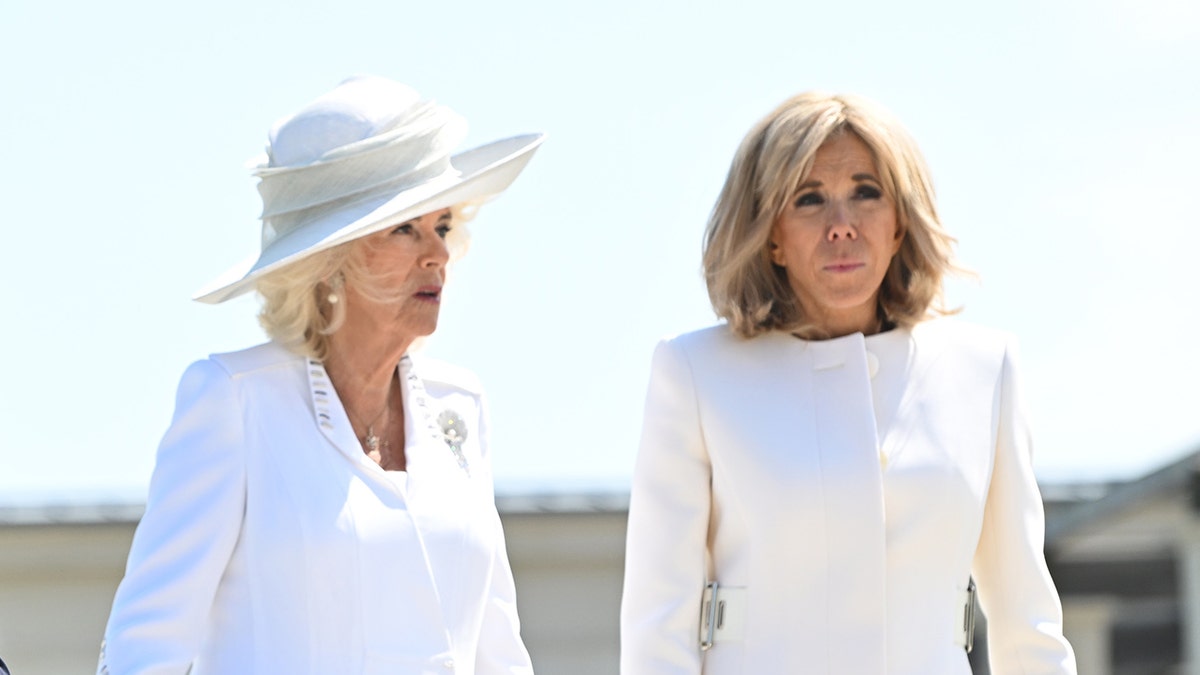
Queen Camilla and French First Lady Brigitte Macron at the Normandy Memorial to mark the 80th anniversary of D-Day. (Getty Images)
The moment quickly got traction on social media, immediately prompting a mixed reaction from the public.
While one person called Camilla's refusal a "petty snub," others showed praise for the Queen.
"It’s against all protocol for the queen to be touched," one user wrote on X (formerly Twitter). "Brigitte should have known better. Queen Camilla showed dignity in not overacting."
WATCH: QUEEN CAMILLA REFUSES TO HOLD HANDS WITH FRENCH FIRST LADY
This isn't the first time the royal protocol boundaries have been tested.
During a visit with President Barack Obama to Buckingham Palace in 2009, Michelle Obama placed her arm around Queen Elizabeth.
At the time, a smiling Queen Elizabeth also strayed slightly from protocol and briefly wrapped her arm around Obama in a rare public show of affection. It was the first time Obama had met the queen.
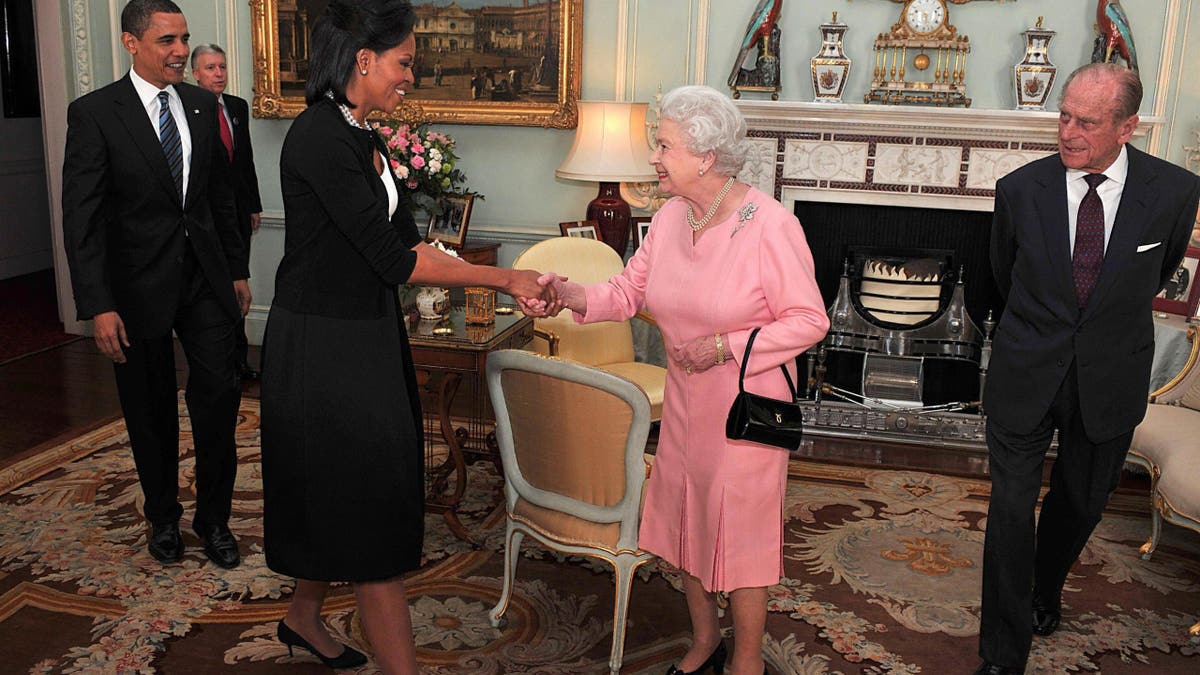
Former First Lady Michelle Obama broke royal protocol during her first meeting with Queen Elizabeth in 2009. (Getty Images)
CLICK HERE TO SIGN UP FOR THE ENTERTAINMENT NEWSLETTER
A Buckingham Palace spokesman, who asked not to be identified because of palace policy, previously said he could not remember the last time the queen had displayed such public affection with a first lady or dignitary.
"It was a mutual and spontaneous display of affection," he said. "We don't issue instructions on not touching the queen."
In her memoir "Becoming," Obama also wrote about the occurrence, reiterating that she had done what was "instinctive" to her.
"Forget that she sometimes wore a diamond crown and that I’d flown to London on the presidential jet: we were just two tired ladies oppressed by our shoes," Obama said (via HuffPost). "I then did what’s instinctive to me anytime I feel connected to a new person, which is to express my feelings outwardly. I laid a hand affectionately across her shoulder."
She continued: "But I tried not to let the criticism rattle me. If I hadn’t done the proper thing at Buckingham Palace, I had at least done the human thing. I daresay that the Queen was okay with it, too, because when I touched her, she only pulled closer, resting a gloved hand lightly on the small of my back."
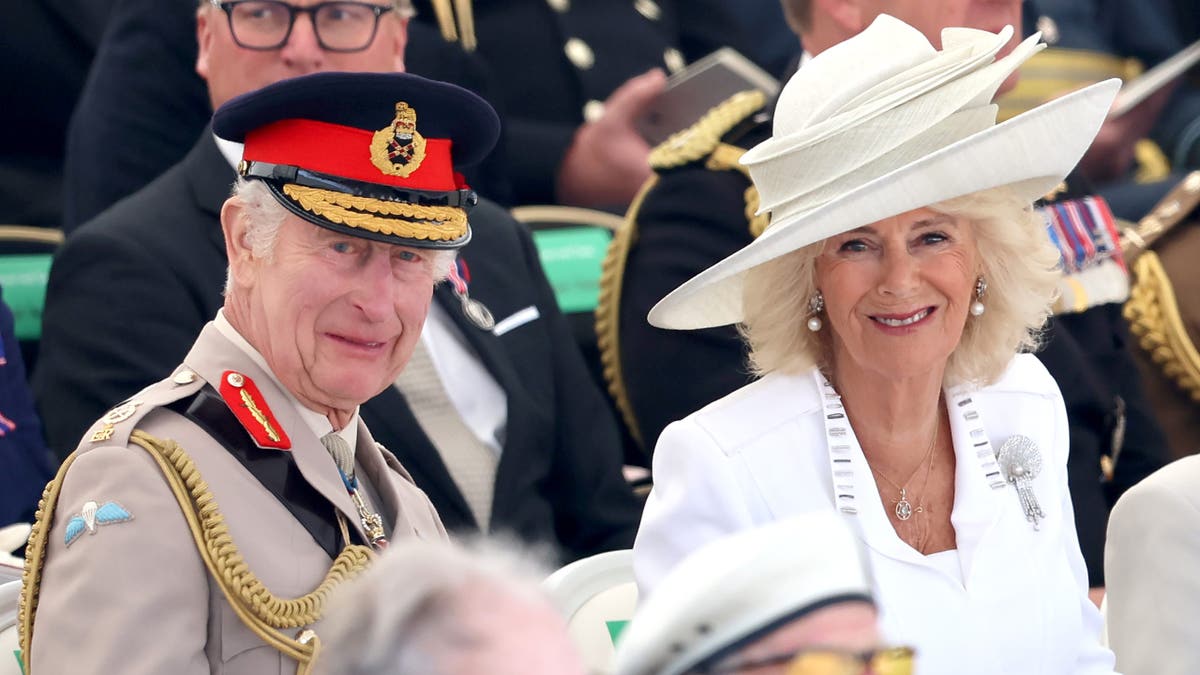
King Charles III made his first trip abroad since announcing his cancer diagnosis. (Getty Images)
During Thursday's event, King Charles – who announced his cancer diagnosis in February – honored the Allied soldiers who landed in France on June 6, 1944, in an effort to liberate France from Nazi-occupied northwest Europe.
"How fortunate we were, and the entire free world, that a generation of men and women in the United Kingdom and other Allied nations did not flinch when the moment came to face that test," Charles said during a speech at the event. "On the beaches of Normandy, on the seas beyond, and in the skies overhead, our armed forces carried out their duty with a humbling sense of resolve and determination."
"Our gratitude is unfailing, and our admiration eternal," he added.
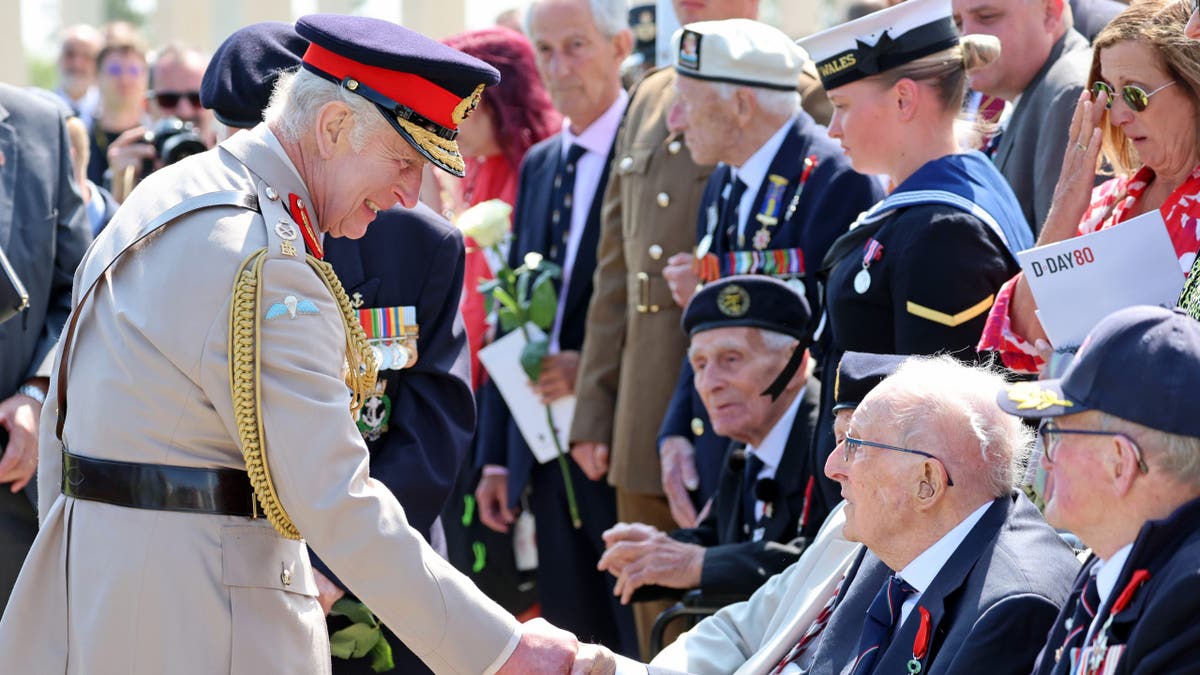
King Charles III speaks with veterans and servicemen during the UK Ministry of Defence and the Royal British Legion’s commemorative event at the British Normandy Memorial to mark the 80th anniversary of D-Day on June 6, 2024 in Ver-Sur-Mer, France. (Photo by Chris Jackson/Getty Images)
LIKE WHAT YOU’RE READING? CLICK HERE FOR MORE ENTERTAINMENT NEWS
One day prior, the king, along with Camilla and Prince William, had arrived in Portsmouth, England, to mark the 80th anniversary of the D-Day landings.
In a video shared on the official royal website, Charles told the crowd of veterans and politicians, "The stories of courage, resilience and solidarity we have heard today and throughout our lives cannot fail to move us, to inspire us and to remind us of what we owe to that great wartime generation, now tragically dwindling to so few."

Prince William talks with D-Day and WWII Normandy veterans following the UK's national commemorative event. (Getty Images)
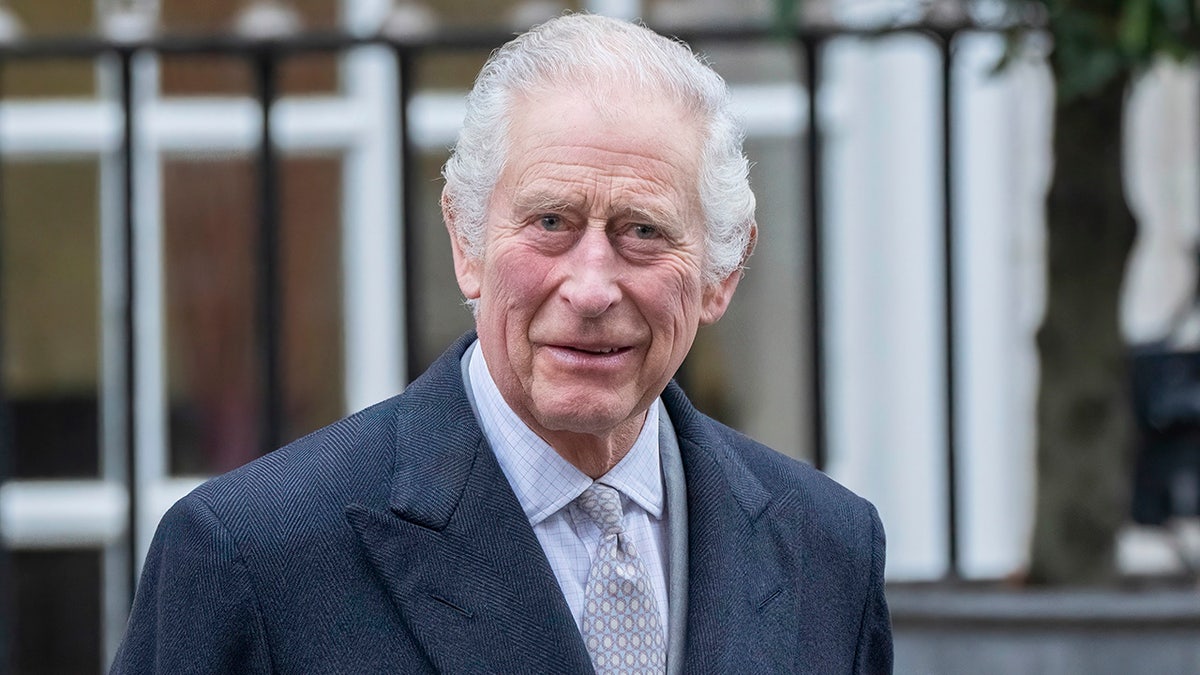
King Charles was diagnosed with cancer shortly after receiving treatment for an enlarged prostate. (Mark Cuthbert)
In February, Buckingham Palace announced Charles had been diagnosed with a form of cancer and was undergoing treatment. A "separate issue of concern" was identified during the monarch's "benign prostate enlargement" procedure at the London Clinic.
"Subsequent diagnostic tests have identified a form of cancer," the palace said in a statement at the time.
CLICK HERE TO GET THE FOX NEWS APP
The Associated Press and Fox News Digital's Mariah Haas contributed to this post.
